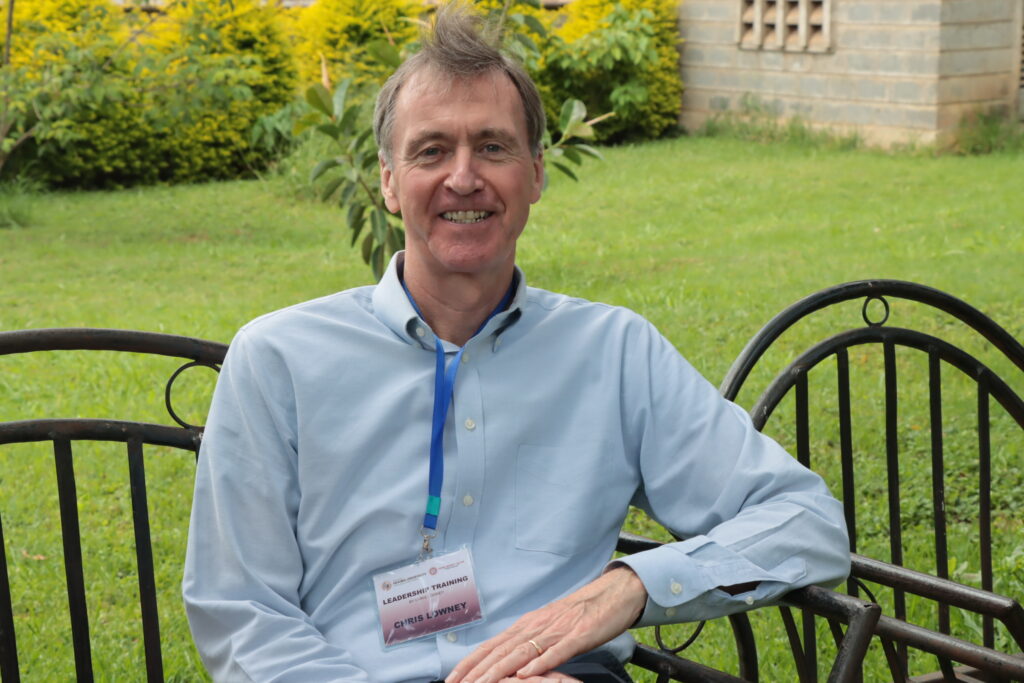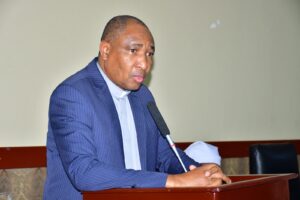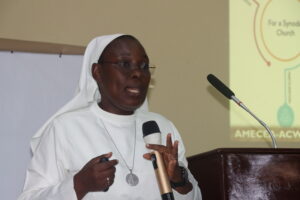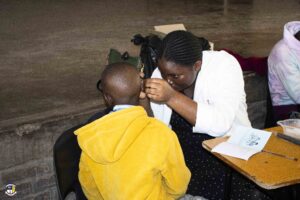KENYA: Reflection and Examination of Conscience Key in Leadership, Says Facilitator for Purpose-Driven Leadership Training

Mr. Chris Lowney
Sr. Jecinter Antoinette Okoth, FSSA
At the side-lines of an ongoing training on becoming a better leader in a complex, rapidly changing world, the facilitator has in an interview emphasised the need for self-reflectiveness as a propeller to being a good leader.
Mr. Chris Lowney a one-time seminarian with the Society of Jesus (Jesuit) has intertwined an aspect of Jesuit charism on “contemplation in action” with leadership, stressing that reflection and examination of conscience are components that make one a good leader.
“I try to change people to be more reflective. One needs to be a reflective person, having daily examination of conscience so as to understand oneself, and how to go about things which need to be done,” Mr. Lowney shared with AMECEA Online Wednesday, May 24, as he began training the first group of participants at the Kenya-based Hekima University College in Nairobi.
According to Mr Lowney, religious institutions teach people about reflection and contemplation for religious reasons “but these should also be a habit for anybody who means well and especially those in leadership positions.”
“Just to look back and analyse what is going on in one’s world, to know what went well, what did not work well, what needs to be done differently and come up with some new ideas is very essential to a leader,” Mr. Lowney expressed.
The nine-day training has been designed for various groups including business leaders, Religious groups and healthcare professionals where each group will have three days for workshop and focus on mastering purpose-driven leadership, based on values such as self-awareness, love, ingenuity, and heroism.
The motive for having leadership sessions offered to groups differently, says the former Managing Director of J.P. Morgan Chase & Co. a multinational financial services company in New York city, “is to allow people share their experiences with those who have similar work of life.”
“Good leadership is good leadership and the core dimension is the same in whichever sector,” Mr. Lowney who has worked with famous business firms, healthcare organizations, Religious groups, and educational institutions to help people develop leadership skills said during the Wednesday interview adding that, “The training themes will basically be the same but the audience and the discussions for the themes will be different.”
Even though the facilitator’s aim is to empower participants to be better leaders, his conviction is that each person has a leadership opportunity and responsibility to influence others but “Our role and thoughts are different.”
“Whenever I ask people during training to name some leaders they know, most participants go for great names like the Pope, or president of a country and normally they never think of themselves,” Mr. Lowney disclosed and underscored, “I realize they do not think of themselves as leaders hence I encourage them to think about ways in which life is giving them leadership opportunities. I therefore inspire them to feel themselves as leaders and not only to look at others. Actually, I help them understand how to be more passionate about their own gifts and possibilities.”
The self-motivated public speaker who is currently the chairman for the board of CommonSpirit Health, the largest healthcare system in the United States is also working behind the scenes to support the Jesuits with ideas as they work towards establishing a university in Kenya.
Basing his comparison with the number of Jesuit Universities in the USA and those in East Africa region, Mr. Lowney said, “We have about 25 Jesuit universities in the US, while in the East Africa region that has such a big population, there is no Jesuit university as much as there are other great universities including Catholic Universities.”
After learning in a Jesuit school and being a seminarian with the same Order, Mr. Lowney feels that the Jesuits need to share the aspects of their charism with the young people through education especially on discernment and reflection.
“Jesuits I believe have a great tradition when it comes to higher learning and I think they could have something unique and valuable for this East Africa region in addition to what other universities in this region have,” he said and continued, “Religious Orders have their own charisms and they should bring their charisms to their work.”
Revealing two dimensions of Jesuits Charism which he feels should be instilled in learners when undertaking their studies in a Jesuit University, Mr. Lowney highlighted the idea of discernment and decision making as well as spiritual exercises and spiritual directions as great ideas.
“I believe that in education, sharing how to be a good discerning leader and a good decision maker will be very beneficial to young people,” the former Jesuit seminarian said and concluded, “there is also need to emphasize on social justice which is very applicable with the Jesuits.”
During the nine-day training, the participants will be empowered to strengthen their capacity to connect with co-workers, teams and clients. They will learn the skills to develop courage to manage organizations amidst volatile, uncertain, complex and ambiguous work environments. They will also be helped to understand how purpose greater than self is the key to heroic, energized personal and team performance.
Besides, participants will learn how to cope with change by becoming more ingenious and innovative as well as develop deeper understanding of unique leadership calling and abilities.


